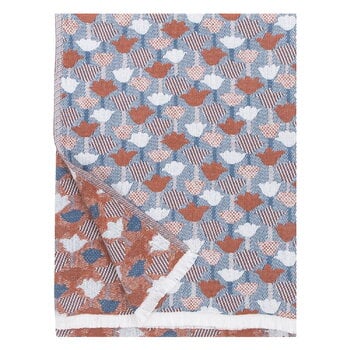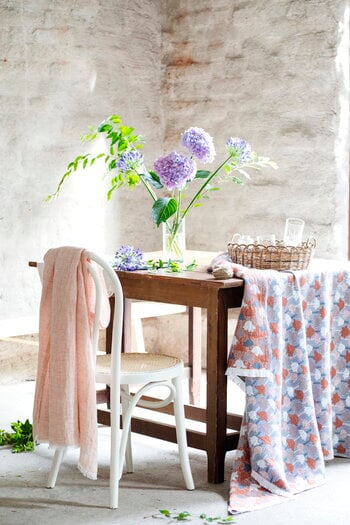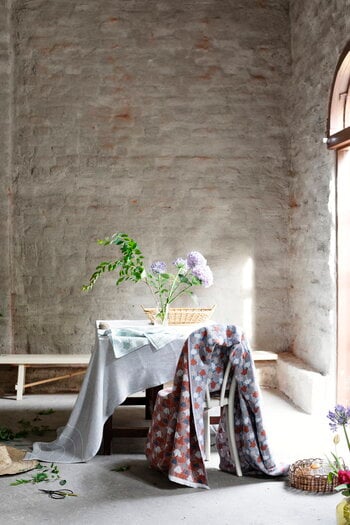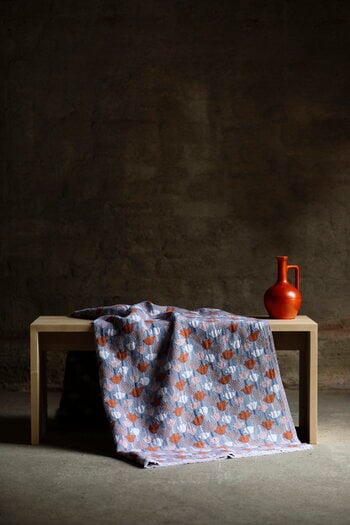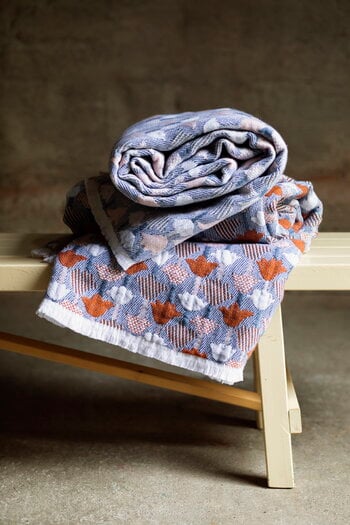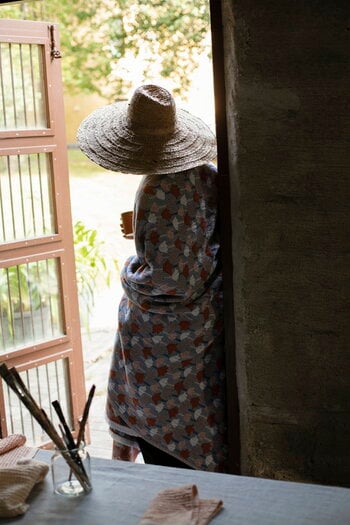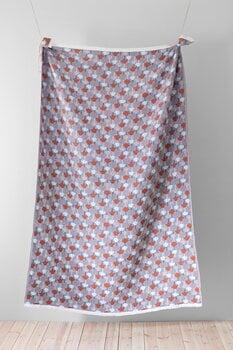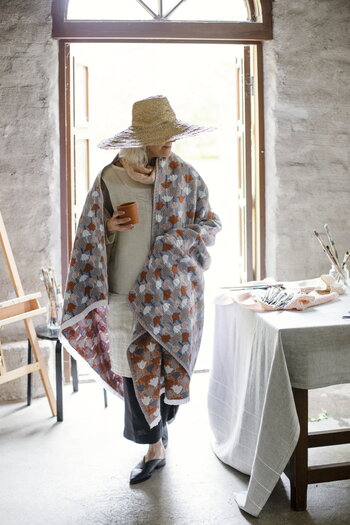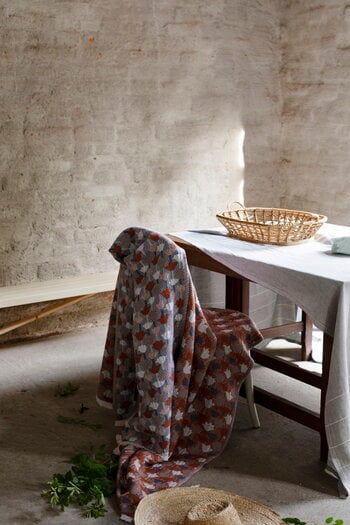The Tulppaani blanket by Lapuan Kankurit features a vivid, organic texture created by a combination of different weaving techniques. Designed by Helmi Liikanen, the pleasantly soft blanket is made from high-quality wool and European linen. The beautiful tulip pattern brings in a feeling of freshness and lightness. Fringed edges give the versatile blanket a finishing touch. The Tulppaani blanket has been woven at the Lapuan Kankurit weaving mill in Finland.
Tulppaani blanket, 130 x 240 cm, cinnamon - blue
Lapuan Kankurit
Description
The Tulppaani blanket by Lapuan Kankurit features a vivid, organic texture created by a combination of different weaving techniques. Designed by Helmi Liikanen, the pleasantly soft blanket is made from high-quality wool and European linen. The beautiful tulip pattern brings in a feeling of freshness and lightness. Fringed edges give the versatile blanket a finishing touch. The Tulppaani blanket has been woven at the Lapuan Kankurit weaving mill in Finland.
Product details (5)
- Material
- 86% wool, 14% linen
- Colour
- Cinnamon, blue
- Length
- 94.49 in (240 cm)
- Width
- 51.18 in (130 cm)
- Care instructions
- Hand wash max. 30°C or dry clean.
- Product ID
Designer
Helmi Liikanen is a textile designer who graduated from Aalto University in 2019 and is known for her woven textiles, especially those designed for Lapuan Kankurit. In her work, Liikanen combines fresh, contemporary ideas and traditional methods. Helmi Liikanen specializes in woven fabrics and print design.
• Read our interview with Helmi Liikanen >
View all productsReviews (0)
Sustainability
The Product Sustainability Framework, our criteria of sustainable design, helps you find the most sustainable products in our selection. Read below which sustainability criteria this product has met.
Working conditions & labour 9/9
-
Equal opportunities for all employees
-
Commitment to UN Global Compact, fair compensation for all employees
-
Corporate responsibility requirements defined and communicated for suppliers
-
Systematic work for improved inclusion and well-being in the workplace
-
Transparent supply chain
-
Suppliers' compliance to a code of conduct ensured
-
Direct suppliers audited and certified
-
Compliance to the UN Guiding Principles on Business and Human Rights ensured in the supply chain
-
Support for community involvement in the supply chain
Eco-friendly production 9/9
-
Fair and resource-wise water-use in production
-
No incineration or landfilling of returned items
-
No use of endangered species as materials
-
No direct environmental emissions or waste (excl. GHGs) from production
-
The sustainability of direct suppliers' production is addressed and monitored
-
Production and material sourcing that respect biodiversity, animal rights, and natural ecosystems
-
Material-efficient and ecological packaging
-
Positive impact on nature’s well-being through operations that regenerate natural ecosystems
-
No potentially harmful chemicals used in own production
Climate impact 6/8
-
Company's direct greenhouse gas emissions identified and commitment to reduction
-
Product's carbon impact identified and commitment to reduction
-
Guidance on energy- and eco-efficient use of the product
-
Contribution to climate initiatives beyond the brand’s direct operations
-
Carbon footprint of the product calculated and goals set to reduce it
-
100 % renewable energy in own production and operations
-
Low-carbon or compensated transportation
-
Carbon neutral or carbon negative product
Sustainable materials 5/6
-
Sustainable and long-lasting material choices
-
No harmful or hazardous substances
-
Responsible raw material sourcing and production
-
Materials suited for circularity: monomaterials, recyclable finishings, renewable or recycled contents etc.
-
Ecological materials: natural, biodegradable, recyclable or recycled contents
-
Outstanding materials in terms of innovativeness, responsibility, sustainability and circularity: local production or sourcing, 100 % recycled content, C2C-certification etc.
Circular design 5/5
-
High aesthetic quality promoting long-term use of the product
-
Technically durable product design and material choices
-
Design for enduring life-long quality
-
Design and support for product maintenance, repair and upgradability
-
Innovative circular design solutions: circular service system, resale platform, remanufacturing, collection of used products, etc.
